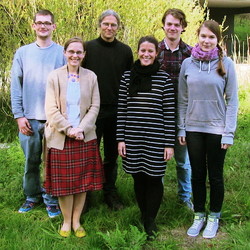Research Group “Revolts as Communicative Events in the Early Modern Period”

Structure
The research group's orientation is interdisciplinary. The group’s work is closely tied to the research context of the “Cultural Foundations of Social Integration” Center of Excellence. At the same time, the doctoral candidates are being integrated into the departments corresponding most closely to their particular disciplines. This dual affiliation will structurally assure coordinated support and supervision.
An orientation point is here potentially offered by problems posed within the new research area B, “Practices of Knowledge and Non-Knowledge.”
The group places great emphasis on international cooperation, working closely with project-relevant research networks throughout Europe and the USA.
Research topic
The research group examines both communication within revolts and communication about revolts in Early Modern times. We are particularly interested in the impact of such communication on both the emergence of and changes in ‘political grammars’ (legitimation of rule; justifications of a right to resist) and long-term preventive strategies adopted by governments. One of the project’s central hypotheses is that after repression of a revolt, Early Modern authorities did their best to consign the recent events to oblivion (damnatio memoriae), with the effect of rendering it nearly impossible to publish accounts of the events within the country where they had occurred. The experience of revolts was thus mediated by complex chains of representations across political, cultural, and disciplinary borders; the process at work here involved successive cultural translations, the reshaping and re-contextualization of knowledge. Such knowledge transmissions are being analyzed in close cooperation within the research group, from the perspective of the different involved regions and disciplines.
Members
PD Dr. Malte Griesse (head)
Revolten der frühen Neuzeit als Phänomene kommunikativer Verdichtung: Russland, Frankreich, Heiliges Römisches Reich
Monika Barget
Frühneuzeitliche Revolten in Großbritannien und Irland im Spannungsfeld von Tradition und Fortschritt
Abstract
David de Boer
Communicating Revolt in the Dutch Republic
Abstract
Associated Members
Gleb Kazakov (Freiburg)
News from the Research Group
-

21. September 2017
American Iconoclasm: Why the broken statues shouldn’t be removed
Tearing down ‘offensive’ monuments? Keep the relics in place, but with a radical mutilation, argues historian David de Boer.
-
17. October 2014
Conference report “Visualizing revolt and punishment in early modern times”
Conference of the research group “Revolts as Communicative Events in the Early Modern Period”
25–27 April 2014, Harvard University. Report at H-Soz-u-Kult
